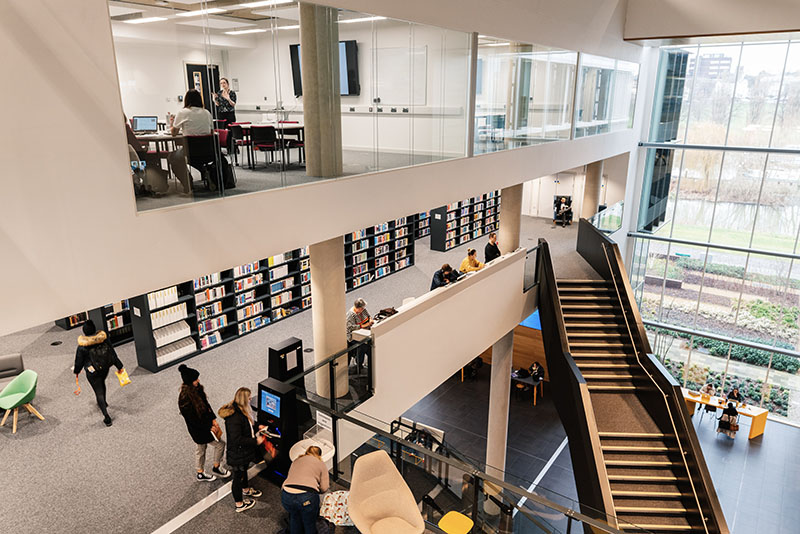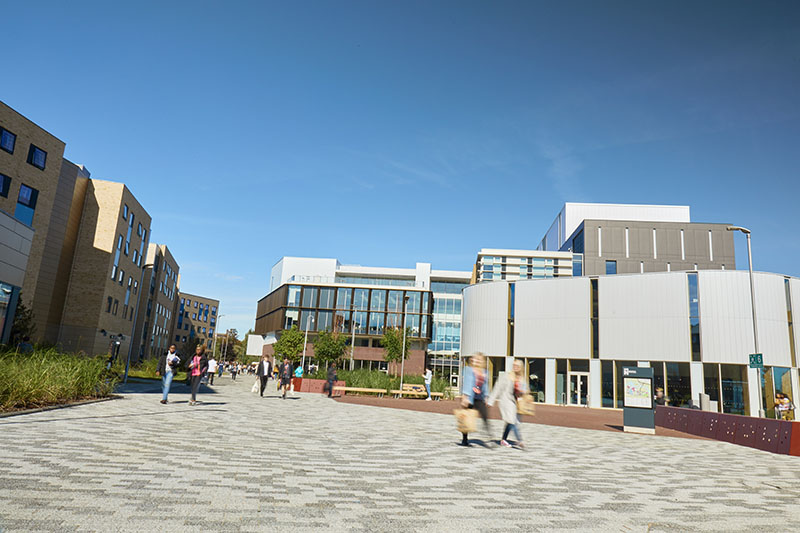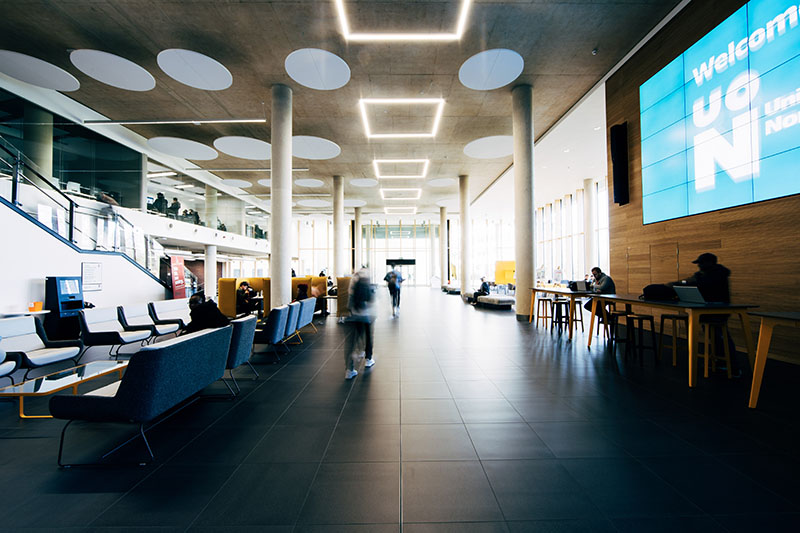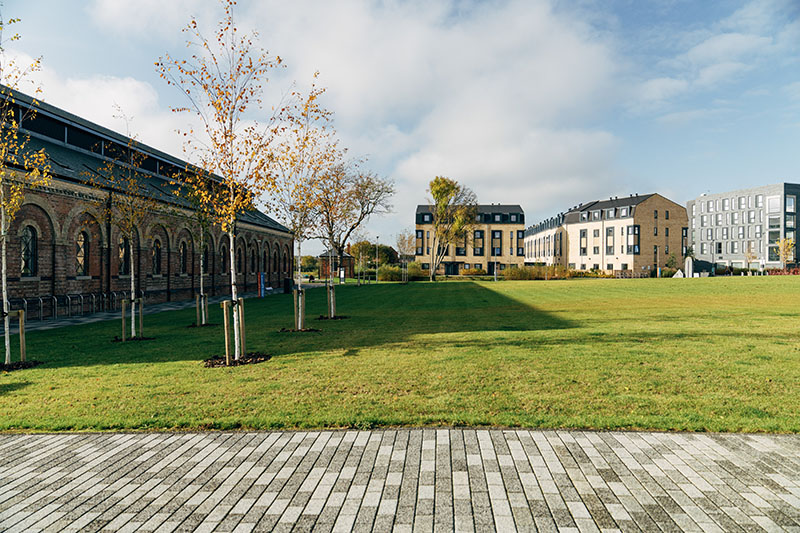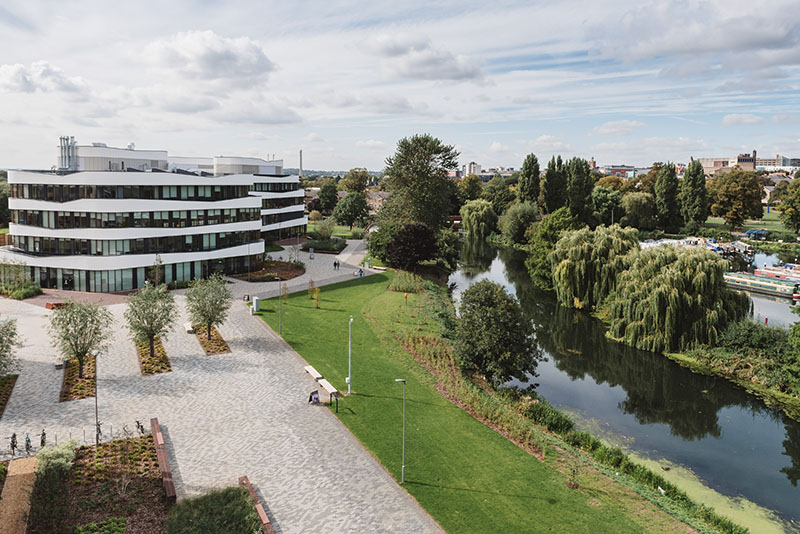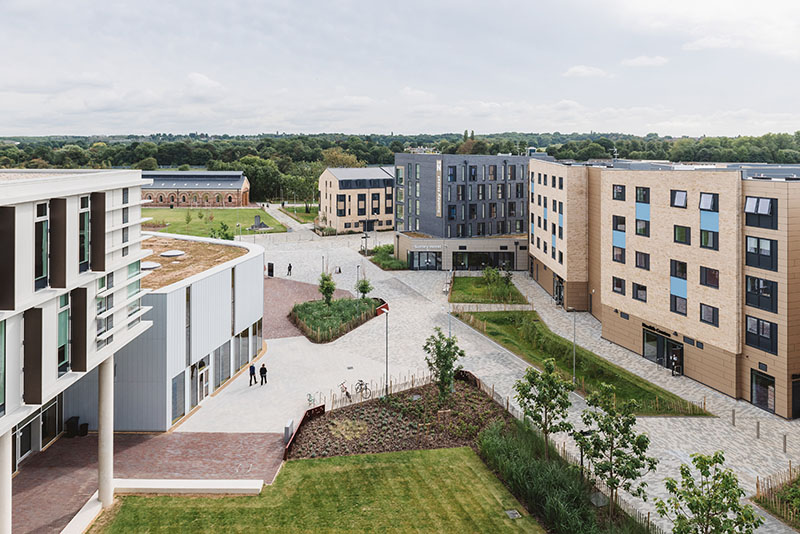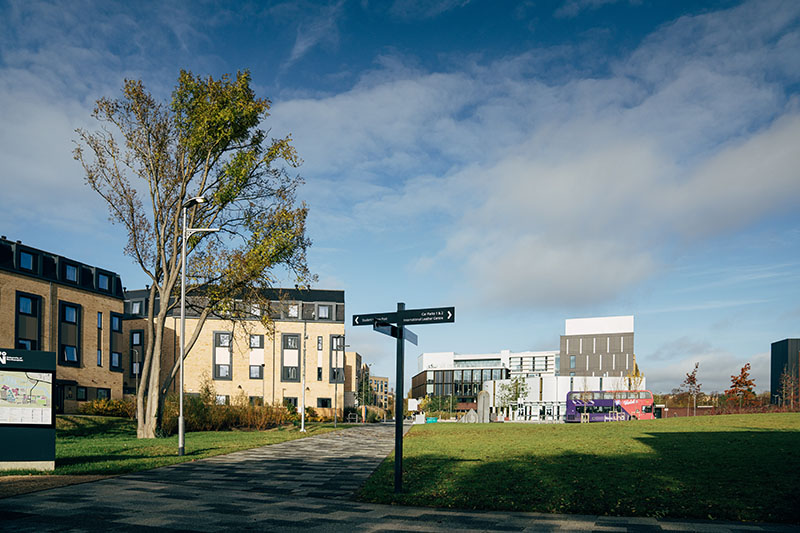
Michael Opoku Agyeman
Professor of Computer Engineering
Faculty of Arts, Science and Technology
DiscoverGet in touch with us as we may be able to offer you a place for September 2024 through Clearing.
UCAS Code
BEng: H600
BEng with Foundation: H601
Level
UndergraduateUG
BEng (Hons)Duration
Full Time: 3 Years
Full Time with Foundation: 4 Years
Part Time: 4 - 6 Years
Starting
September
BCC at A-Level or,
DMM at BTEC
Fees UK 24/25
Full Time: £9,250
Part Time: £1,540 per 20 credit module
Integrated Foundation Year: £9,250
Fees International 24/25
Full Time: £15,200
Integrated Foundation Year: £15,200
Location
For questions regarding study and admissions please contact us:
The University of Northampton’s Electronics and Computer Engineering BEng (Hons) degree equips students with the theoretical knowledge, practical skills and competencies required to enter a range of Electronics and Computer Engineering related careers. The computer engineering degree goes through the exploration of software/hardware design concepts and implementation.
Throughout the computer engineering course, you will be able to explore and implement exciting software and hardware design concepts. You will also analyse and engage with emerging trends and innovations such as Internet of Things (IoT), Embedded Systems, electronic circuits, mobile application development. Further areas of focus for the electronics and computer engineering degree include programmable electronics, sensor development, basic robotics, hardware artificial intelligence and control devices.
Updated 03/07/2024
Our BEng programme gives you the platform to critically analyse and apply knowledge of key principles, theories and concepts relating to Electronics and Computer Engineering. Each of these applications are coherent, detailed and informed by the academic discipline or area of professional practice.
On this electronics and computing engineering course, you will also develop and apply a range of problem-solving skills to real-world electronics and computer engineering scenarios. The development of these skills will aid you in strengthening your professional and academic career prospects.
This degree in computer engineering and electronics is carefully designed to provide you with the skillset of both electronics and computer engineering, exposing you to the multidimensional skillset required in both fields.
During this Computer Engineering BEng course, students will have the opportunity to join the UON Computing Society among other student union societies. Students will also have the opportunity to join professional bodies such as IET, BSc, ACM. IEEE students benefit from discounted memberships, enhancing their engagement with the wider professional body.
In the first year of this computer engineering degree, you will study six modules including Object Programming, Fundamentals of Computing Systems, Electronic Engineering Practice, Engineering Industry Practice, Engineering Mathematics and Engineering Simulations.
These modules cover the fundamental principles, programming, and practical skills needed to excel on this course. Mastering this skillset will enable you to move on to a more specialised range of modules offered during the second and third year of your course.
The second-year modules include Microprocessors and Internet of Things (IoT), Introduction to Artificial Intelligence (AI), Electrical and Electronics Principles, Advanced Mathematics for Engineers, and Engineering Industry Practice.
The year three modules on this computer engineering course are Advanced Artificial Intelligence and Applications, Mobile Application Development 2, Advanced Digital Electronics and Engineering Project.
The knowledge you gain throughout this electronics and computer engineering course is put to good use through practical activities that will equip you to pursue a career in Industry. You may also embark upon obtaining Higher Degrees through research and development. You will have the opportunity to develop yourself individually and as part of a team through various hands-on practical activities and group projects. In the final year Dissertation, you get to work individually on a real-world project that showcases the skills you have acquired through various modules on the programme.
Please note the modules shown here relate to the academic year 24/25. The modules relating to the academic year 25/26 will be available from June 2025.
A typical offer for the Electronics and Computer Engineering BEng could be:
We look for applicants with A-Level Maths at grade C or above, or Engineering at BTEC or T Level.
Applicants will be expected to have achieved GCSE Mathematics (or equivalent) at grade C or above. We welcome international applicants and applications from students with a range of non-traditional educational or professional qualifications, and also applications from students with a mix of A levels and BTEC/Cambridge Technical qualifications.
For information on how to apply to study with us, please see our How to Apply page.
Admission to this foundation course is normally:
However, we would also like to hear from you if you have professional or industry experience instead, a range of other qualifications or self-developed subject knowledge that relates to the course you wish to study.
All International and EU students applying for a course with the University of Northampton must meet the following minimum English language requirements:
For information regarding English language requirements at the University, please see our IELTS page.
Fees quoted relate to study in the Academic Year 24/25 only and may be subject to inflationary increases in future years.
There are currently no additional costs anticipated for this Electronics and Computer Engineering course for 2024 entry.
Fees quoted relate to study in the Academic Year 23/24 only and may be subject to inflationary increases in future years.
There are currently no additional costs anticipated for this course for 2023 entry.
For information on the scholarships available to you, please see our scholarships page.
For more information about possible funding options, please visit our Fees and Funding pages.
At the University of Northampton, everything we do, from funded trips to paid internships, is to give you everything you need to make a difference when you leave.
If you join this full time computer engineering degree at Northampton, you will receive a laptop when your course begins*. The laptops are built to a bespoke custom specification ideal for use in the seminar room, collaborative group work or studying at home.
Whatever your ambitions, we’re here to help you to achieve them. We’ll support you to identify the skills you’re learning during your electronics and computer engineering course, find your strengths and secure practical experience so that when it comes to applying for jobs or further study you’ll feel confident in standing out from the crowd. We’ve created the Northampton Employment Promise because we are so confident that if you focus on your studies and complete one of our awards you’ll be highly employable by the time you graduate. Putting you in a great position to secure employment or continue your studies.
To check out the full list of perks, visit our Student Perks page or dedicated International Perks page.
*UK fee payers only (see Terms and Conditions for further details).
The Integrated Foundation Year (IFY) offers a new and exciting route into studying for a degree, attracting ambitious and driven students who are willing to learn and advance.
If you have non-standard qualifications or do not quite meet the admissions requirements for BEng Electronics and Computer Engineering, we can offer you a fantastic opportunity to study a four year programme which includes an Integrated Foundation Year. The Integrated Foundation Year will help you develop the theoretical/practical and academic skills you need, in order to successfully progress to the full award.
Our four-year courses will enable you to successfully follow the degree pathway of your choice while gaining essential study skills. The foundation year of your chosen degree will be studied on a full-time basis and is aimed at supporting the transition to higher education. Years two, three and four are then studied as a standard degree programme.
Open Days give you the best experience and insight to courses, people and facilities that interest you. Make your choice easier and come meet us.
Professor of Computer Engineering
Faculty of Arts, Science and Technology
DiscoverOur specialist Electronics and Computer Engineering BEng (Hons) degree strategically targets the stat-of-the-art skillset demand in industry and academia for both Electronics Engineering and Computer Engineering.
This computer engineering programme provides you with the opportunity to develop the skills and knowledge required to work in a range of roles including full system design cycle, implementation, maintenance, and management of embedded systems. Other roles your skillset will lend itself to include IoT systems, edge devices, electronics and control circuits, computer systems, programmable systems, and mobile applications.
Our computer engineering degree graduates have gone onto working with employers such as:
Common computer engineering job roles include:
Some of our electronics and computer engineering graduates have also moved on to work in Higher Education as Research Assistants, Teaching Fellows, Graduate Teaching Assistants, Associate Lecturers and into funded PhD positions. Other graduates also work as freelancers or run their own companies e.g. as Mobile Application Developers and IT consultants.
The University of Northampton’s master’s courses are a great way to enhance the skills you have already learnt. Benefit from our 20% alumni discount on master’s fees to give you a CV that will catch the eye of employers.

The Computer Network Engineering programme enables students to develop a range of analytical techniques and problem-solving skills to real-world computer networking scenarios.
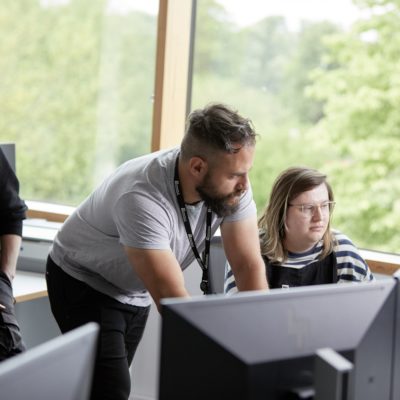
Our Computer Science degree BSc (Hons) gives you the opportunity to explore different ideas and develop innovative solutions to current issues in the computing industry.
